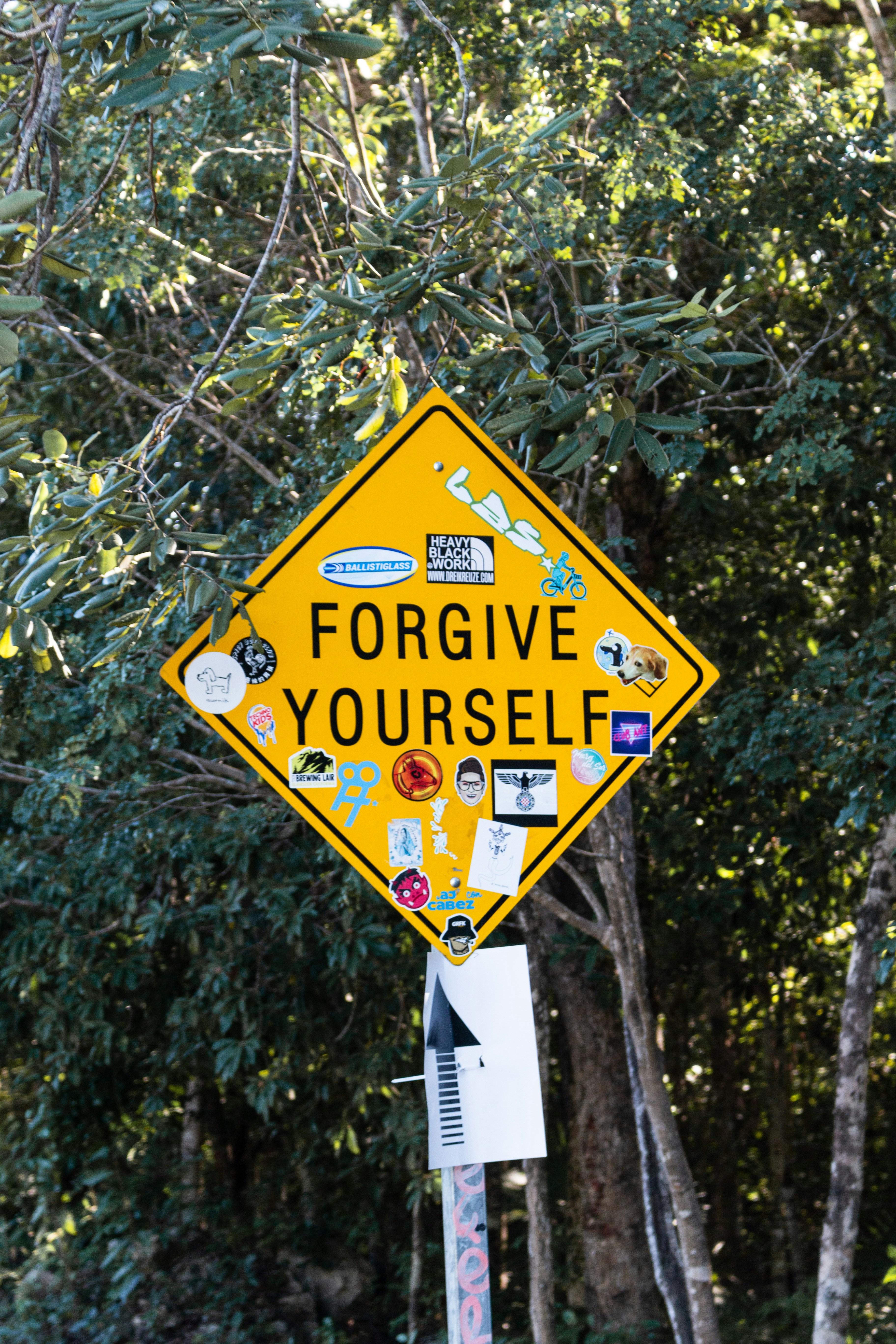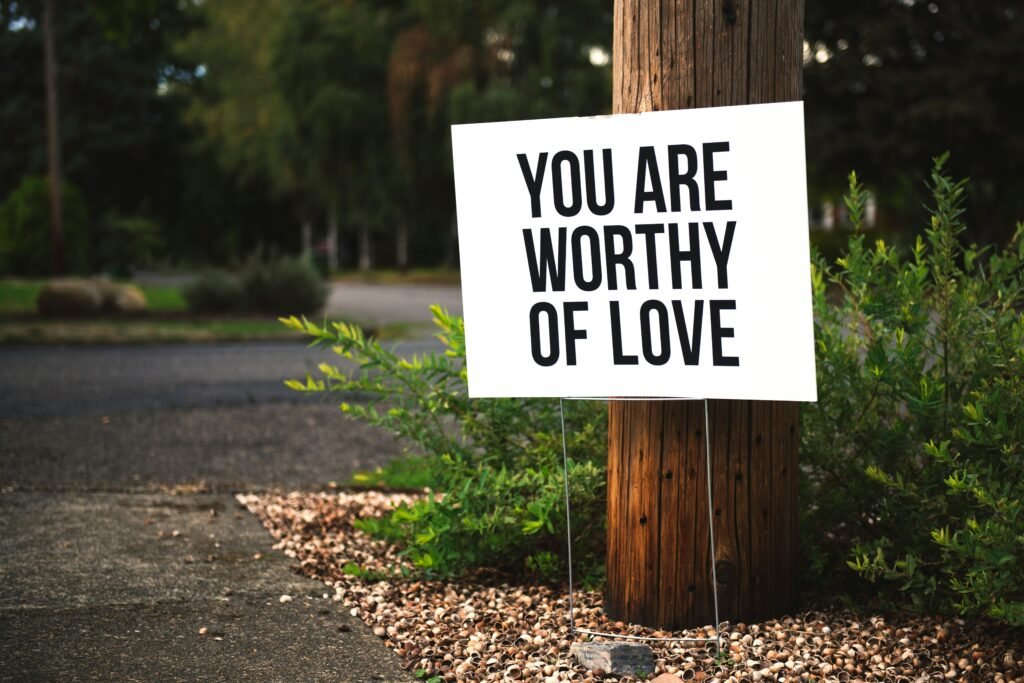9 Essential Steps Forgive Yourself: The Power of Letting Go
November 23, 2024 | by Ali

Table of Contents
Learning to Forgive Yourself: The Power of Letting Go
Let’s get one thing straight right off the bat: You are not a robot. You are human. As humans, we make mistakes. Whether it’s messing up at work, hurting someone we love, or just falling short of the expectations we set for ourselves, we all do it. The trick, however, isn’t avoiding mistakes, because let’s face it, that’s not going to happen. The real challenge is learning how to forgive yourself when you mess up. Sounds easier said than done, right? Well, buckle up, because we’re about to dive into the messy but absolutely essential journey of self-forgiveness.
In this post, I’ll walk you through why self-forgiveness is so important, how to finally let go of guilt, and step-by-step strategies to help you do just that. Spoiler alert: it’s not a one-and-done deal, and you won’t wake up one day miraculously healed. But hey, if you stick with it, you’ll be able to look in the mirror and stop cringing at your past mistakes.
Why Self-Forgiveness Is Important (Hint: It’s for Your Mental Health)
Before we dive into the “how” of self-forgiveness, let’s start with the “why.” Why should you forgive yourself? Well, here’s the thing: if you hold onto guilt, shame, or resentment, it’s like dragging a heavy suitcase around all the time. Not only does it wear you down, but it also keeps you from moving forward. Let’s be real, who wants to carry unnecessary emotional baggage everywhere? Nobody. (Unless it’s a purse filled with snacks or a perfectly packed carry-on for vacation… but that’s a different kind of baggage, right?)
When you don’t forgive yourself, it creates a mental block. It’s like you’re stuck in the past, replaying the same mistakes over and over in your head. Every time you think about it, you relive the disappointment, the guilt, and the shame. That constant cycle isn’t just exhausting, it’s also unproductive.
On the flip side, forgiving yourself allows you to:
Move on: You stop living in the past and start focusing on the future.
Build resilience: Learning from your mistakes makes you stronger and more capable of handling future challenges.
Practice self-compassion: The more you forgive yourself, the more you treat yourself with kindness and patience, which are essential for mental well-being.
If you’re still wondering why this whole “self-forgiveness” thing matters so much, the American Psychological Association, forgiveness can improve mental and physical health. Additionally, if you can’t forgive yourself, it’s hard to fully embrace your potential. Guilt and shame keep you small, and that’s not where you’re meant to be. You’ve got big things to do, and forgiving yourself is part of the journey to get there.

But… It’s So Hard to Forgive Myself!
Oh, I hear you. Forgiving yourself can feel like one of the most challenging things on the planet. You’ve hurt someone, made a mistake, or let yourself down, and it’s hard to let go of that guilt. But here’s the thing: the longer you hold on to it, the more it weighs you down.
And here’s the kicker: the person you’re really punishing when you don’t forgive yourself? It’s you. It’s like holding onto a grudge with yourself, and that’s not going to make you feel any better. In fact, it’ll only keep you stuck. So, how do you get to a place of self-forgiveness? Great question. Let’s break it down.
Step 1: Acknowledge What Happened (No, Really Do It)
Here’s the hard truth: You can’t forgive something you’re still pretending didn’t happen. Denial is like trying to shove a beach ball under the water…it doesn’t work, and it’s only going to pop back up when you least expect it.
The first step to forgiving yourself is to acknowledge what happened. Take a deep breath (or ten) and face the situation head-on. Don’t minimize it. Don’t justify it. Just recognize that yes, you made a mistake, and that’s part of being human. This doesn’t mean you’re a bad person, it just means that you’ve got some work to do.
This step can be hard, especially if you’ve been avoiding thinking about it, but confronting the situation is essential. It might be uncomfortable, but it’s the first step toward growth. The more you practice it, the easier it gets. (Promise!)
Step 2: Understand the “Why” Behind Your Actions (Hint: You’re Not Evil)
You messed up. You feel guilty. But now, let’s get real: Why did you do what you did? Did you act out of fear? Were you stressed? Were you trying to protect yourself? Were you suffering from an underlying mental health issue or trauma? Understanding the why behind your actions is key to self-forgiveness.
Newsflash: You’re not a villain. You didn’t mess up just for kicks. There were reasons for your behavior, whether it was a lapse in judgment, a lack of awareness, or simply being under a lot of pressure. Guess what? That’s okay. But the key is to recognize those reasons, so you don’t repeat the same mistake in the future.
Take a moment to ask yourself:
What was going on in my life that contributed to this decision?
What did I learn from this mistake?
How can I handle this situation differently next time?
By reflecting on the reasons behind your actions, you allow yourself to see the bigger picture. You weren’t just being “bad” or “wrong,” you were reacting based on your circumstances. Understanding this can help you develop empathy for yourself, which is a crucial step toward healing.

Step 3: Practice Self-Compassion (And Cut Yourself Some Slack)
Here’s the deal: We’re all human. We make mistakes. It’s literally part of the deal. So, why is it that when we mess up, we’re often the harshest on ourselves? If a friend came to you, heartbroken and filled with guilt over a mistake they made, would you tell them they’re an awful person? Probably not. You’d likely say something along the lines of, “Hey, everyone makes mistakes. What matters is how you learn from it.”
When it comes to ourselves, we often skip the compassion and go straight for self-criticism. News flash: That’s not helping. Self-criticism only makes you feel worse, and it doesn’t teach you anything.
Instead of being your own worst critic, try being your own best friend. Would you tell your best friend they’re worthless because they made a mistake? Of course not. You’d offer them comfort, understanding, and encouragement. So why not give yourself that same kindness?
Some ways to practice self-compassion include:
Speaking to yourself kindly: When you mess up, instead of saying, “I’m so stupid,” say, “I made a mistake, but I’m going to learn from it and move forward.”
Recognizing that mistakes don’t define you: Making a mistake doesn’t make you a bad person. It just means you’re human, and you’ve got the ability to grow from it.
Taking care of your needs: Self-compassion means nurturing yourself emotionally, physically, and mentally. If you’re feeling down, take time for self-care, whether it’s a cozy bath, a nap, or just watching your favorite feel-good movie.
Part of self-care also means protecting your energy by setting boundaries, which you can learn more about in The Power of Saying No: 5 Essential Tips to Improve Your Mental Health.
The more compassion you show yourself, the easier it becomes to forgive yourself. It’s all about changing that inner dialogue from harsh judgment to kind encouragement. And trust me, your mental health will thank you for it.
Step 4: Make Amends (When Possible)
Sometimes, forgiveness isn’t just about feeling better, it’s about making things right with others. If your mistake hurt someone else, try to make amends. Apologize sincerely, and if appropriate, work on rebuilding trust. This doesn’t mean you need to “fix” everything overnight, but taking responsibility and owning up to your actions can go a long way in healing both your relationship and your own sense of guilt.
Remember: you can’t control how others respond, but you can take responsibility for your actions and show that you’re committed to being a better person moving forward. And guess what? That’s a step toward self-forgiveness, too.

Step 5: Let Go of the Guilt (Seriously, Let It Go)
Ah, guilt. It’s that sneaky, heavy feeling that loves to stick around longer than it’s welcome. Here’s the truth: guilt is not your friend. It might feel like you deserve to hold onto it as punishment, but that’s just not the case.
At some point, you have to decide: Am I going to keep carrying this guilt around like a backpack full of rocks, or am I going to take it off and leave it behind? It’s not easy, but if you keep holding onto that guilt, it’ll only prevent you from moving forward.
So, what do you do? Let it go. Recognize that guilt is a natural emotion, but it doesn’t serve you in the long run. Focus on the present, what you’ve learned, and how you’ll do better next time. Most importantly, give yourself permission to move forward without dragging the past with you.
Step 6: Practice Patience (Healing Doesn’t Happen Overnight)
Okay, I get it. You want to forgive yourself right now. You want to snap your fingers, poof, and instantly feel all warm and fuzzy inside without the guilt or shame hanging over you. Here’s the hard truth: self-forgiveness doesn’t work like a magic trick. It’s a process, and that process takes time.
If you’ve been carrying guilt around for a while, don’t expect it to disappear in one swift moment of self-reflection. Just like getting over a cold or running a marathon, it takes time, effort, and patience. While it’s tempting to wish you could speed up the healing process, rushing it won’t help you in the long run. Instead, embrace the journey.
Think of it like learning to ride a bike. At first, you’ll stumble, maybe even fall. But eventually, with practice, you’ll get the hang of it. The same goes for self-forgiveness: you might have moments of doubt or feel like you’re not “there” yet, but with time, the weight of guilt will get lighter. You’ll find that you’re able to let go more easily as you work through the process, and before you know it, you’ll be coasting.
So, give yourself permission to be patient. Don’t beat yourself up for not forgiving yourself immediately. Recognize that healing is a slow, steady process. Every step forward is progress, and each day you choose self-compassion is another win.

Step 7: Be Open to Growth and Change
When you make a mistake, it’s easy to feel like you’ve failed. It’s easy to think that you’re somehow a bad person or unworthy of forgiveness. But the truth is, mistakes are growth opportunities in disguise. They’re not a sentence to stay stuck forever, but a chance to learn, evolve, and become a better version of yourself.
So, as you forgive yourself, allow the experience to shape who you are. Take a hard look at the situation and ask yourself: What can I learn from this? How can I grow? For example, maybe you hurt someone unintentionally. Now that you’ve reflected on it, maybe you’ve learned to communicate more clearly, or perhaps you’re more aware of your triggers. Whatever the lesson, there’s always something to be gained from every mistake.
Rather than viewing your errors as weaknesses, try seeing them as valuable lessons. Each mistake is a steppingstone on your path to becoming a wiser, more empathetic person. When you embrace growth, you’ll realize that self-forgiveness isn’t just about letting go of guilt…it’s about changing for the better.
Pro Tip: Write down the lessons you’ve learned along the way. Journaling is a great way to track your progress and gain clarity. Whenever you feel stuck or like you’re making no progress, revisit your notes and see how far you’ve come. It can be a huge boost to your confidence and help you realize that self-forgiveness is already working its magic.
Step 8: Seek Support When Needed (You Don’t Have to Do This Alone)
No man (or woman) is an island, and sometimes, getting through the process of self-forgiveness is easier when you have a little help. If you’re struggling, don’t hesitate to lean on friends, family, or even a therapist. Having a trusted support system can make all the difference as you work through your feelings of guilt and self-blame.
Talking about your feelings doesn’t make you weak, it makes you human. Sharing what you’re going through with someone else can help you gain perspective and, more importantly, feel less alone. Sometimes just hearing someone say, “You’re not a terrible person,” or “We all make mistakes,” can work wonders.
Therapy, too, can be an incredible tool for understanding the root of your guilt and breaking the cycle of negative self-talk. A good therapist can help you dig into the deeper emotional layers, guide you through self-forgiveness, and offer strategies for letting go of those unhealthy thought patterns.
If therapy isn’t an option, there are also support groups, online communities, or even trusted friends who can be a sounding board for your journey. There’s no shame in reaching out when you need it. Remember, even superheroes need sidekicks.
Step 9: Celebrate Your Progress (You’re Doing Great)
Finally, let’s talk about celebrating the wins, because every step forward counts. Sometimes, when you’re so focused on healing, you forget to recognize the progress you’re making. But trust me, you’re moving in the right direction, even if it doesn’t feel like it.
So, take a moment to celebrate those small victories. Did you manage to speak to yourself kindlier today instead of beating yourself up? Celebrate that. Did you make amends or apologize for something you’ve been holding onto? That’s huge, give yourself a pat on the back. Did you take time to focus on self-care instead of wallowing in guilt? Major win! You deserve credit for these moments of self-compassion, because each of them is proof that you’re letting go of the past and moving forward.
A simple way to celebrate is by acknowledging your achievements aloud. Tell yourself, “Hey, I did something good today,” or “I’m proud of myself for letting go of that guilt.” It may feel awkward at first, but positive reinforcement can help rewire your brain for kindness and self-acceptance. The more you celebrate your progress, the more likely you are to keep moving forward. Remember, the road to self-forgiveness is one you don’t have to travel alone. You can always throw yourself a “Yay me!” party, preferably with snacks and a playlist full of empowering tunes.
Final Thoughts: You’re Worthy of Forgiveness
Learning to forgive yourself isn’t about excusing your mistakes. It’s about acknowledging your humanity and giving yourself the grace to grow from them. It’s about releasing guilt, embracing self-compassion, and taking steps to do better next time.
So, take a deep breath, let go of the guilt, and give yourself permission to heal. You deserve it. Your mistakes don’t define you, but how you respond to them does. You’ve got this and the journey of self-forgiveness is a big part of the amazing person you’re becoming.
Hey, if you need a little extra reminder: You’re a total rock star, even when you mess up. Just keep learning, growing, and forgiving yourself along the way.
RELATED POSTS
View all




Leave a Reply